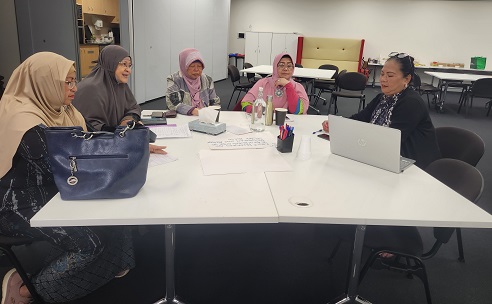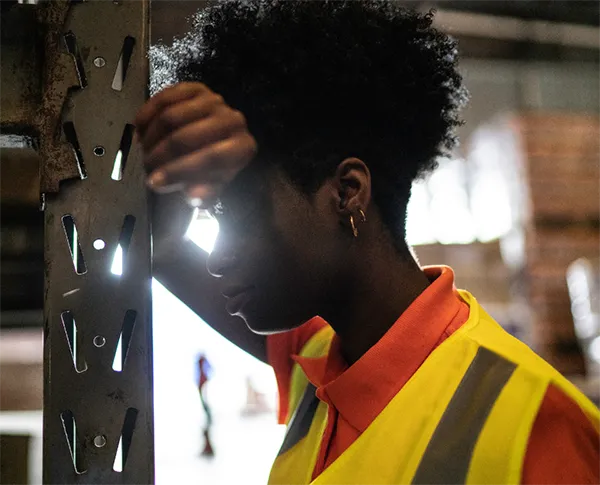About the program
The Strategies to Prevent Modern Slavery (SToP Modern Slavery) project was funded by the Federal Attorney-General’s Department to develop short story-based videos as an education tool to deepen knowledge and understanding of modern slavery in all its forms.
The videos particularly focus on forced labour, domestic servitude within intimate partner relationships, and forced marriage, as three forms of modern slavery. They are designed to deliver sessions to hold meaningful and engaging discussions and reflection to understand the nuances around these forms of modern slavery.
“The approach of using story-based videos and facilitating discussions
has led to ongoing conversations with the community.”
The videos
A series of short videos explains the three forms of modern slavery in simple, relatable terms, using examples developed in partnership with communities. These videos can be used in group discussions or as a self-reflective exercise, and some are also available in Arabic, Dari and Chinese.
How do you want to use the videos?
What is modern slavery?
In Australia, modern slavery is defined as ‘a range of serious exploitative practices which includes human trafficking, slavery, slavery like practices, and the worst forms of child labour.’ (National Action Plan to Combat Modern Slavery 2020-2025).
Modern slavery includes situations where people are forced to work or marry against their will, are not paid properly, are controlled through threats, deception, coercion, and cannot safely walk away from the situation.
Forms of modern slavery:
- Human trafficking
- Deceptive recruitment
- Forced marriage
- Slavery
- Debt bondage
- Forced labour
- Worst forms of child labour
- Domestic servitude
Some signs someone may be in a modern slavery situation:
- They are not allowed to leave their work or home freely.
- Their passport or ID is held by someone else.
- They are afraid to speak up or seek help.
- They work long hours with little or no pay.
- They are under constant surveillance or control.
Learn more about the Strategies to Prevent Modern Slavery (SToP) Program
About Strategies to Prevent Modern Slavery (SToP)
The Strategies to Prevent Modern Slavery (SToP Modern Slavery) Project was funded by the Attorney-General’s Department under the National Action Plan to Combat Modern Slavery 2020-25. The program aimed to develop short story-based videos as an education tool to deepen knowledge and understanding with migrant and refugee communities around modern slavery. This project was guided by a reference group comprising of community leaders, people with lived experience, and experts.
The consultation process
As part of the Strategies to Prevent (SToP) Modern Slavery program, community consultations were undertaken across New South Wales and Queensland, with some exploratory engagement initiated in Victoria. These consultations included a combination of individual interviews and group discussions involving 84 participants, including community members, faith leaders, people with lived experience, community leaders, and frontline workers from over 20 culturally and linguistically diverse communities. The process provided critical insights into community perceptions, knowledge gaps, and the culturally specific ways in which modern slavery is experienced, understood, and addressed within different communities.
The co-design process
The co-design of these resources was undertaken in genuine partnership with community leaders, individuals with lived experience, and community organisations – ensuring that their cultural expertise and insights meaningfully shaped the content.
How did we create these videos?
A series of story-based videos were developed to present the complex issues of forced labour, forced marriage, and domestic servitude within intimate partner relationships in a simple, engaging, and culturally relevant manner.
Developed with cultural sensitivity and respect, these videos break down complex concepts into relatable contexts, making them more accessible and impactful for diverse communities. Importantly, the videos present these issues in a way that allows for othering, fostering a sense of empowerment through awareness, education, and meaningful engagement aimed at challenging and disrupting harmful norms and practices through the medium of stories and film.
“Proud that I attended this session, if you hear anything problem, you must report to the police system, this is good information.”
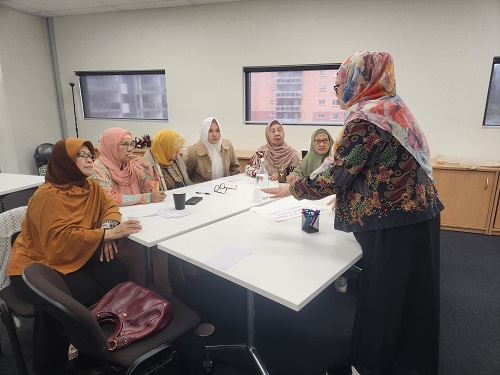
“Simple video presentation and explanation about the issue.”
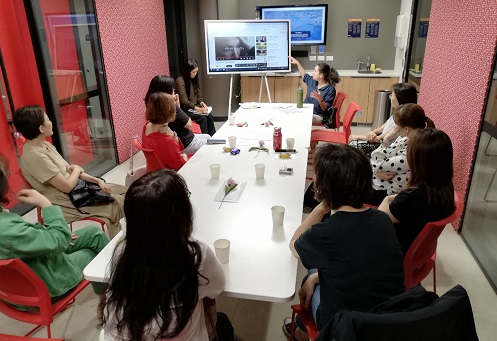
“In my opinion, this session was very great and I learn a lot. I know this sort of sessions will help women to share their stories and it will inform them to get help if needed. It was great to be here. Thanks a lot.”

“We need more awareness. These services are useful for early marriage.”
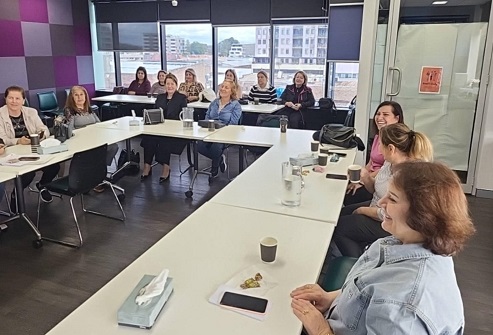
“I have gained more knowledge about domestic servitude and would share to my friends and close relatives.”
